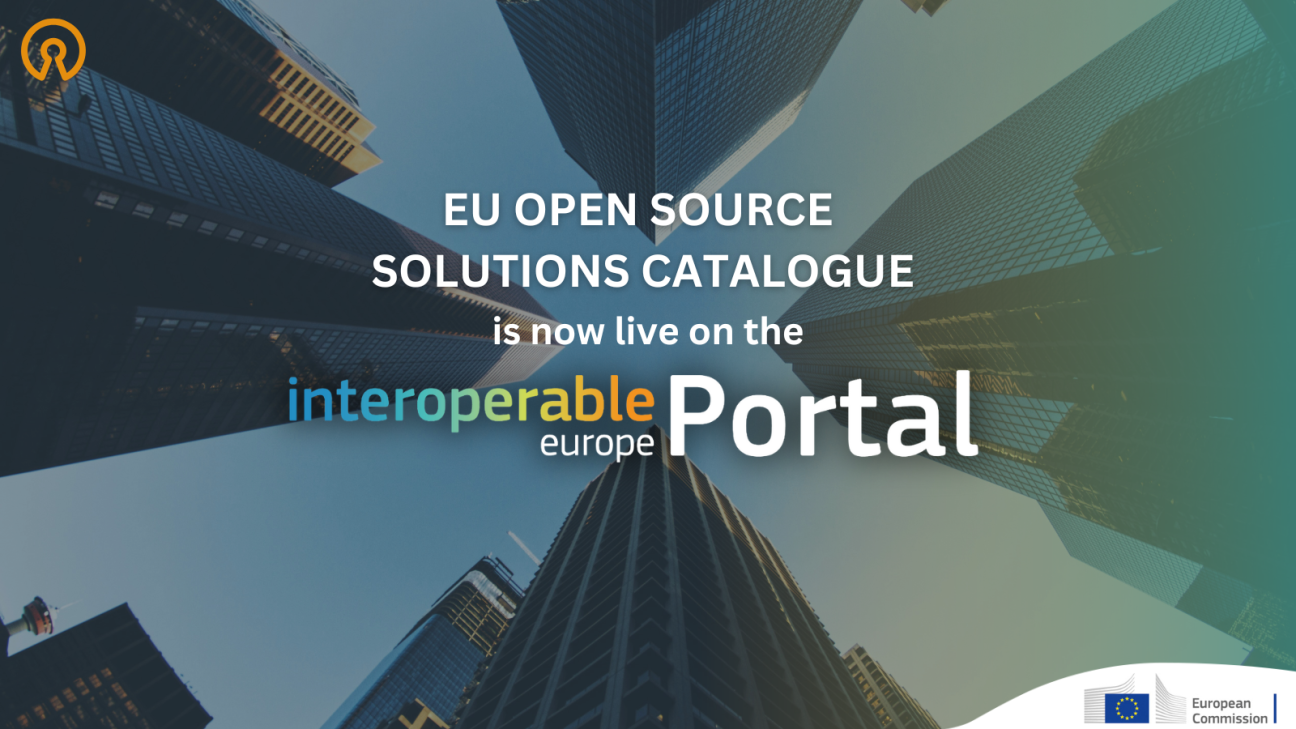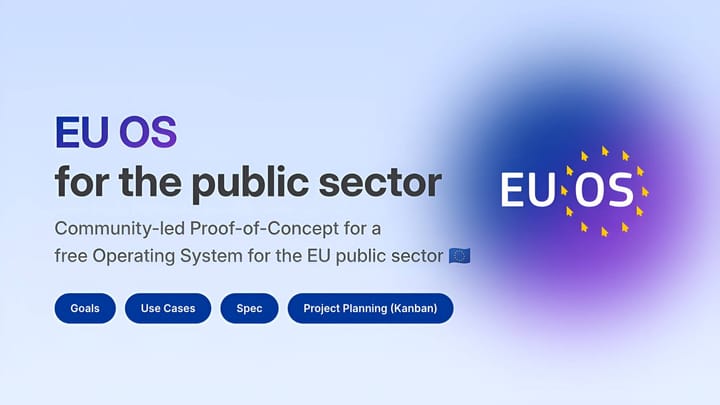The EU Open Source Solutions Catalogue Goes Live. What does it mean?
The European Commission has made public today the EU OSS Catalogue, a repository of open-source solutions, made now more easily available for public administrations across the continent.

The EU Open Source Solutions Catalogue (from now on, EU OSS) is a repository of open-source solutions that range from data visualisation applications to messaging programs or task managers, to name a few examples. The announcement was made today, and it is a part of the EU Commission's initiative named FOSSEPS, or Free and Open Source Software Solutions for European Public Services. More specifically, the initiative is owned by the European Commission's Directorate-General for Digital Services (DIGIT) - before 2023 it was known as "Directorate-General for Informatics. The Catalogue has been made available through the Interoperable Europe Portal, a platform that aims to promote and support "interoperability, collaboration, and knowledge sharing across public administrations, businesses, and citizens".
According to their statement, the catalogue now hosts more than 600 solutions, and is planned to add hundreds of new initiatives by the end of 2025. In their own words:
Designed primarily for public administrations across the EU, the catalogue provides access to reusable solutions across more than 30 key areas relevant to public sector needs.
Built on a federated architecture leveraging public APIs, the EU OSS Catalogue consolidates solutions from national and local OSS catalogues across EU Member States into a unified central repository.
Besides the EU's appreciation for long names, this also proves that the EU is increasingly acknowledging the pivotal role that open-source solutions will have on its path towards Digital Sovereignty. As mentioned in other writings here, in The Debugger, open-source solutions have significant advantages over proprietary code. Among those we can name:
- Reduced costs: it is definitely cheaper to implement open-source solutions because public administrations usually do not have to deal with expensive licenses each year.
- Greater scalability: this is also related to cost. If a solution works well in a particular administration (let's say, the municipality of Berlin), it is easier to replicate it anywhere else (for instance, the municipality of Sofia). This also cuts costs, since there is no need to reinvent the wheel if there is a stable and reliable product already available out there.
- Improved security: as we insist, by its open-source nature, this kind of software tends to be safer because anybody can audit it at anytime, which mitigates the risk of back-doors or other vulnerabilities being exploited.
- Fostered innovation and efficiency: because solutions do not need to be built from scratch over again, and because it is easier to innovate from a base of already existing public knowledge - just as in any other field.
It must be noted that initiatives like the one presented today are not entirely new. The EU has since long supported specific open-source projects, even if not in a massive and particularly advertised way. For instance, since at least 2014, the EU has acknowledged the importance of using open-source ICTs, at least in critical sectors. Moreover, last January 31st was held, in Brussels, the EU Open Source Policy Summit 2025, which reunited policymakers, open-source advocates and companies alike, in order to discuss the role of open-source in Europe's digital strategy. We will release further articles covering this topic, and a broader case for open-source solutions across Europe, which can be applied to almost any administration outside Europe.
So far - at least to the extent of our knowledge - France and Germany, with the addition of Italy and the Netherlands, have been the primary contributors to open-source projects aimed at serving the public administration. There is still much work to be done, but this repository takes a further step in making those solutions more easily interoperable across countries and sectors by improving collaboration and re-usability across Europe.
Further reading:
- European Commission Digital Strategy, available in English, French, and German.
- Open Source Program Office, an initiative backed by the European Commission.
- Public Money, Public Code, a campaign of the Free Software Foundation Europe. It explains in an effective and accessible way the benefits of using free and open-source software in the public administration.


